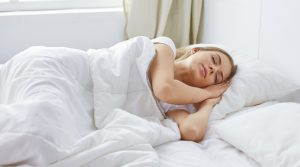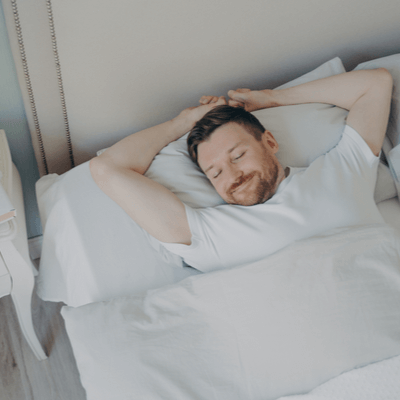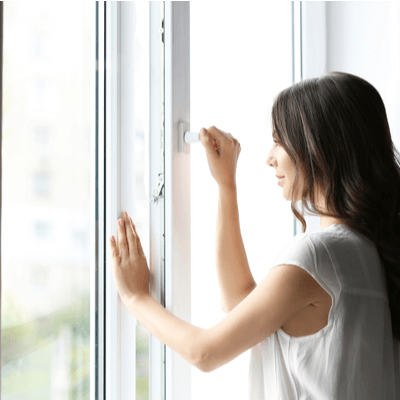How sleep works
Everything You Need to Know About Sleeping
For the majority of people, sleep appears like it must be simple. You close your eyes. You sleep until you are not tired anymore, you get up and continue on your day, repeating the cycle as needed. For those who think this way, it might be interesting to know that sleep is, in fact, a complicated and surprising process which is vital to a person’s well-being.
In this post, allow me to guide you about how sleep works.
What is Sleep?
 There was a case when people considered that sleep was a time when the brain and body “shut off” for several hours every night to rest in preparation for the following day. However, scientists know that neither the brain nor the body “shut down” when we sleep. They are often working much harder than they do throughout the day. It undergoes processes to enhance health, process information and restores cells.
There was a case when people considered that sleep was a time when the brain and body “shut off” for several hours every night to rest in preparation for the following day. However, scientists know that neither the brain nor the body “shut down” when we sleep. They are often working much harder than they do throughout the day. It undergoes processes to enhance health, process information and restores cells.
By definition, sleep is a psychological behavior which is typical in all animal species. It builds around one-third of human life. It’s not identified the exact purposes of sleep, but it appears to be vital for survival, as continued sleep deprivation results in severe physical damage followed by cognitive loss and later on, death.
You see, sleep disturbances are essential clinically because they are pointers of almost every type of psychiatric conditions. What’s more, sleep is a state where it lowers awareness of environmental stimuli. Sleep is different from hibernation, states of coma and death by the fact it could be rapidly upturned.
Why Do We Sleep?
Sleep has been the topic of thought and speculation since the era of the ancient Greek philosophers. Scientist still has not located an exact reason why animals need to sleep each night. Nonetheless, based on research and tracking the brains of sleeping humans, they have some theories. Among its complex functions, sleep:
- Plays a Crucial Role in Immune Function
The body generates special proteins known as cytokines. It helps the immune system combat infection. More of such proteins are generated during sleep when a person is asleep, according to the U.S. Department of Health and Human Services. That’s one of the many reasons why you might feel so exhausted when you have the flu.
You see, rest offers the body the stage it requires to generate such infection-fighting proteins and to preserve itself to wellness.
- Simplifies memory and learning
Did you know that you don’t just rest to sustain the concentration and attention required to learn new tasks? Sleep is a period for the brain to consolidate memories that make learning new stuff much easier, according to Harvard’s Division of Sleep Medicine.
Furthermore, people who sleep after learning ways to play a video game usually do much better in the game after, than those who keep awake. More fascinatingly, a recent research by Natural Neuroscience showed that individuals could even learn new behaviors while they are asleep.
- Provides the body an opportunity to recover from daily stresses of life
A lot of experts have told the restorative powers of sleeping. That does not simply mean that the body rests when sleeping. Instead the cells reproduce themselves, and the breathing, heart rate, and body temperature drop to save energy.
Sleep is vital to life. Laboratory animals deprived of sleep perish. Humans do not appear to be immune to the life-threatening impacts of sleeplessness. A survey performed by the American Cancer Society concluded that individuals who sleep six hours or less every night, or who sleep nine hours or more had a death rate of 30% higher than those who sleep seven to eight hours.
Further, even those who sleep six hours or less who otherwise had no health issues had death rates that are 1.8 times greater than those who sleep “normal” hours.
What Happens When We Sleep?
In case you didn’t know yet, once the sleep sets in, there are four stages of sleep. The first state is the initial NREM phase, where the alpha activity is gone. The pattern varies to low voltage mixed frequency EEG pattern, and there’s noticeable theta activity along with sharp waves scattered on EEG. In this stage, the eye activities slow down, and the muscle town lowers.
- Stage 1. In this short stage, the body drifts to sleep. The body waves are high amplitude, occasional alpha waves, and slow waves. Percent of total sleep period for young adults is five percent.
- Stage 2. In this stage, breathing and heartbeat slow and the sleep is much deeper than the first stage. Slow wave sleep remains with points of brain waves happening. Percent of total sleep period for young adults is 44 to 55%.
- Stage 3 and 4. These are the stages of deepest sleep, once the brain waves are the slowest. Heartbeat and breathing slowly much further and your muscles relax. Dreams are much more typical than the earlier stages and talking, or sleepwalking might happen during these stages. Percent of total sleep time for young adults is 15 to 23%.
What is Rapid Eye Movement?
REM sleep stages lengthen throughout the night. The initial REM cycle might be only ten minutes. The last can last as long as 1 hour. Throughout this cycle, the heartbeat rises, breathing becomes light, eyes move faster, dreams are vivid, and muscles are relaxed. Percent of overall sleep period for young adults is 20 to 25%.
How Much Sleep Do We Need?
The amount of sleep differs among people. The average sleep requirement is at least seven to nine hours of sleep every night. Some people might function well with less than six hours of sleep every night while some might need at least 12 hours of sleep.
Recommendations for sleep duration are broken down by age group.
- Newborns (0 to 3 months) need 14 to 17 hours of sleep
- Infants (4 to 11 months) need 12 to 15 hours
- Toddlers (1 to 2 years) need 11 to 14 hours of sleep
- Preschoolers (3 to five years) need 10 to 13 hours of sleep
- School children (6 to 13 years) require 9 to 11 hours of sleep
- Teenagers (4 to 17 years) require 8 to 10 hours of sleep
- Adults (18 to 64 years) require 7 to 9 hours of sleep
- Senior adults (65 years and above) require 7 to 8 hours of sleep
What Sleep Problems Are There and What Causes Them?
Following are some of the common sleep disorders and the factors that trigger them:
- Bedwetting
Nocturnal enuresis or bedwetting talks about the unintentional passage of urine when sleeping. It’s one of the most frustrating and prevalent sleep problems of childhood. It’s an indication of toilet training gone bad and is a normal part of a kid’s development.
- Narcolepsy
This is a neurological problem characterized by too much sleepiness, hallucinations, sleep paralysis and in other cases episodes of cataplexy. Individuals with this kind of sleep disorder suffer uncontrollable episodes of falling asleep throughout the day.
- Insomnia
This a problem of staying asleep. This is triggered by medical and psychiatric conditions, specific substances, unhealthy sleep habits, or particular biological factors. You see, insomnia typically results in daytime sleepiness, a general feeling of being not well both physically and mentally and lethargy.
- Cataplexy
This is an uncontrollable and sudden muscle weakness which comes throughout the day. It’s often caused by a strong emotion, like laughter or excitement. Throughout an episode of cataplexy, a person is awake but paralyzed temporarily. These episodes might include jaw or head dropping, grimacing or flickering, and facial twitching
Tips for Better and Good Sleep
To avoid these sleeping problems, it’s essential that you have ways to combat them. Since quality is crucial, try to make sure you are sleeping well all night.
Following are some tips to enhance your sleep:

Be more active
Research has shown that is not active is linked with bad sleep, and equally, getting exercise throughout the day might help you sleep better during the night.

Exercise meditation
Relaxation and meditation training might help enhance sleep quality as well as brain function.

Lower your usage of electronics
Too much use of electronic gadgets and cell phones has been linked with poor sleep quality. What’s more, even too much exposure to bright lights before bed might affect your sleep negatively.

Make a comfortable setting
Sleeping in a serene, dark room at a comfortable temperature setting could help you sleep better at night. Being in a too warm or in a noisy environment and being too much active before bed is connected to poor sleep as well.

Establish a soothing bedtime routine
Did you know that using a relaxing regimen before bed could help you get in the right mood to sleep? For instance, listening to a piece of relaxing music has been known to help enhance sleep quality in particular groups.

Follow a regular program
Going to bed at the same time every night helps control your inner clock. Meanwhile, following an unbalanced sleep program has been connected to poor sleep duration and quality.
To maximize your bedtime, establish good habits, lessen your alcohol intake, follow a regular schedule and make a comfortable setting for your sleep.
